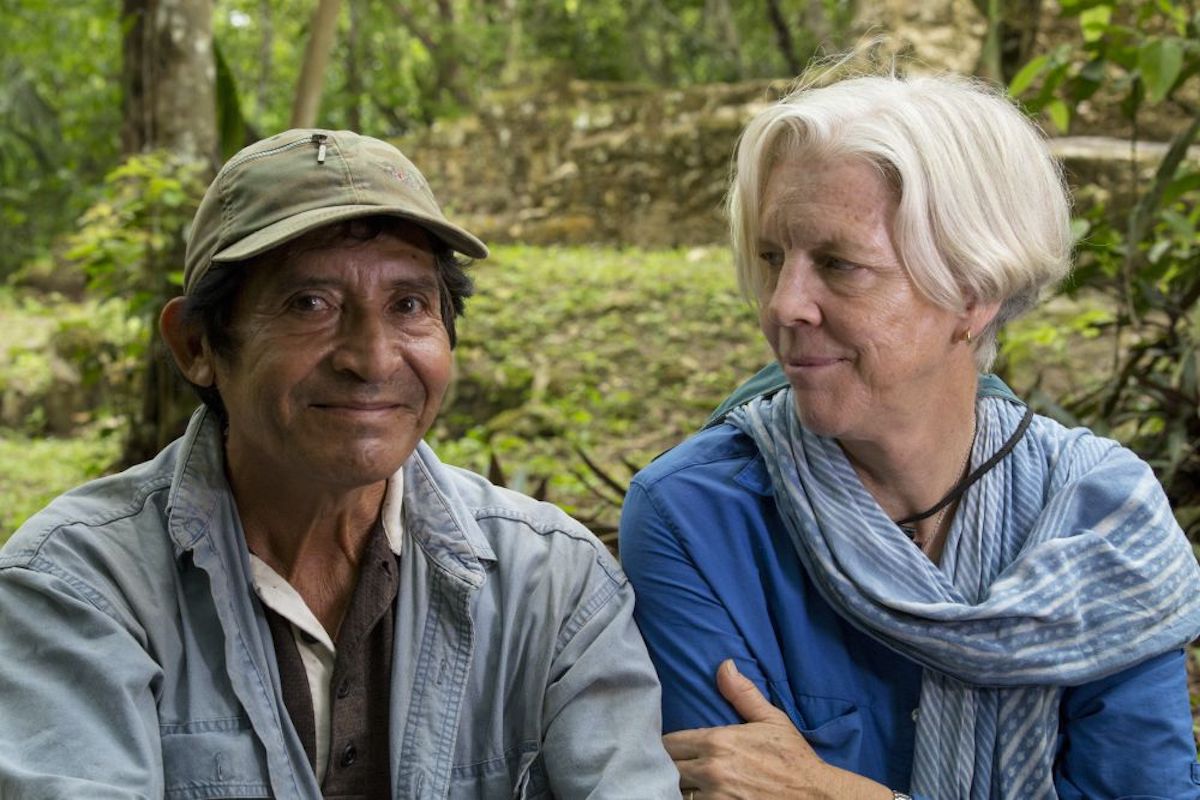Ancient Farming Lessons for the Future
UCSB Recognizing Maya Forest Gardener Narciso Torres, a Citizen Scientist from Belize’s El Pilar

Though UCSB doles out plenty of awards to faculty and students every year, they almost never go to citizen scientists, those folks who help academics collect data and provide critical insights while going about their daily lives. But next week, UCSB’s longtime leader Henry Yang will bestow the university’s top medal upon Narciso Torres, a Maya forest gardener and longtime collaborator with archaeologist Anabel Ford who will receive the Chancellor’s Award on January 13.
“Chancellor Yang is highlighting the importance of different ways of knowing and seeing,” explains Ford, who’s built a legendary career around her discoveries at El Pilar in western Belize. After achieving initial acclaim for unearthing the ancient ruins on the border of Guatemala, Ford soon realized that there was more to learn from people like Torres, who rely on generational knowledge to cultivate the region’s flora and fauna in sustainable ways that have much to teach us today.
“In this award,” said Ford, “the academy is opening its eyes and welcoming traditions born of the basic scientific method of trial and error, recognizing the wide range of contributions to the world of science.”
Torres and Ford met in the early 1980s, when she was surveying the area where he lived. Her field director, Scott Fedick, hired Torres as part of the team and learned that he was growing cacao trees, among other native species. “I got hooked and I can’t get unhooked,” said Torres with a smile via a video call last month, while a rainstorm pelted his home in Belize.
“We knew he had a wonderful garden and were delighted to have him work with us,” Ford said. “Over the years, we realized he was our teacher and we were learning from him. His observation skills are subtle, and his knowledge rivals ecologists’. Every situation we encounter, he will assess it from a perspective that will seem novel to me but evident to him. He can return to an exact spot without a compass or GPS. He can tell how soon the rains will arrive, he can identify the ancient Maya presence without doubt, and he can interpret potentials of soil without a pH test!”
Sign up for Indy Today to receive fresh news from Independent.com, in your inbox, every morning.
With the rise of regenerative farming and a broad public desire for more eco-friendly methods of everything, Torres’s lessons are increasingly relevant. “I’m seeing that young kids are getting more in tune with what this means,” he explained, but life often gets in the way, as people are pulled away to careers in the big cities. “Children are very, very happy when they are outdoors and playing with plants, but I think we’ve broken that love. Some can do it and some want to do it, but they don’t have the opportunity.”
Ford recognizes this better than most. “Even in Santa Barbara, we don’t respect farming like we should. The average age of the forest gardener is quite old. But if we don’t capture that knowledge now, we could lose it forever.”
This will only be the second time that Torres has visited the United States — the first time was just last year. He has a full schedule of visits to farms and historic sites around Santa Barbara, where he’ll certainly be sharing his wisdom with all who listen.
“We are losing so much,” said Torres of the plant species he cultivates, which are often slashed and burned by more industrial agriculture. “We are destroying them with chemicals. We are using things that are not Mother Nature.” Yet he remains jovial and hopeful, explaining, “We want to see a better life for our future generations.”
Support the Santa Barbara Independent through a long-term or a single contribution.



